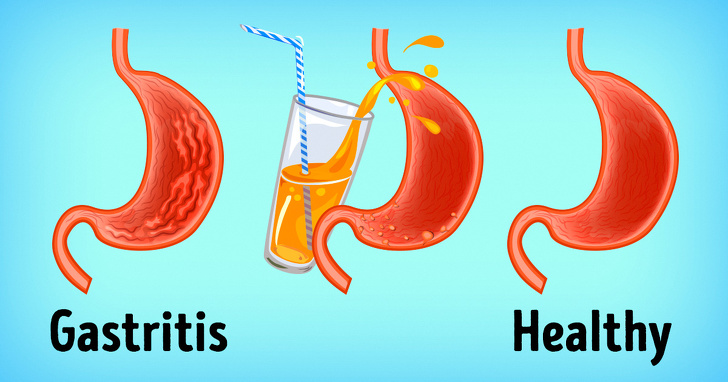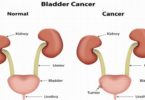What's in this article?
What is Gastritis?
Gastritis is a group of diseases that cause inflammation of the lining of the stomach. Acute gastritis occurs suddenly, and will frequently respond to appropriate therapy while chronic gastritis develops slowly. The inflammation of the stomach lining is most frequently caused by a bacterium called H. pylori. Gastritis can vary greatly from mild gastritis to severe gastritis. Symptoms might not always be correlated with the severity of the disease.
What Causes Gastritis?
Gastritis can be caused by irritation due to excessive alcohol use, chronic vomiting, stress, or the use of certain medications such as aspirin or other anti-inflammatory drugs. It may also be caused by any of the following:
- Helicobacter pylori (H. pylori): A bacteria that lives in the mucous lining of the stomach; without treatment, the infection can lead to ulcers, and in some people, stomach cancer.
- Bile reflux: A backflow of bile into the stomach from the bile tract (that connects to the liver and gallbladder)
- Infections caused by bacteria and viruses
If gastritis is left untreated, it can lead to a severe loss of blood and may increase the risk of developing stomach cancer.
What are the Symptoms of Gastritis?
Surprisingly in many people, gastritis often produces no symptoms and is diagnosed only when samples of the stomach mucosa are examined for other suspected diseases. However, when gastritis symptoms occur, the most common symptoms include the following:
- Abdominal pain (intermittent or constant burning, gripping or gnawing pain) often accompanied bynausea and vomiting
- Diarrhea
- Loss of appetite
- Bloating
- Burping
- Belching
These last four symptoms come and go over time especially with chronic gastritis. Indigestion (dyspepsia) is another term that encompasses this cluster of symptoms.
Risk factors for Gastritis
Factors that increase your risk of gastritis include:
- Bacterial infection. Although infection with Helicobacter pylori is among the most common worldwide human infections, only some people with the infection develop gastritis or other upper gastrointestinal disorders. Doctors believe vulnerability to the bacterium could be inherited or could be caused by lifestyle choices, such as smoking and diet.
- Regular use of pain relievers. Common pain relievers such as aspirin, ibuprofen (Advil, Motrin IB, others) and naproxen (Aleve, Anaprox) can cause both acute gastritis and chronic gastritis. Using these pain relievers regularly or taking too much of these drugs may reduce a key substance that helps preserve the protective lining of your stomach.
- Older age. Older adults have an increased risk of gastritis because the stomach lining tends to thin with age and because older adults are more likely to have H. pylori infection or autoimmune disorders than younger people are.
- Excessive alcohol use. Alcohol can irritate and erode your stomach lining, which makes your stomach more vulnerable to digestive juices. Excessive alcohol use is more likely to cause acute gastritis.
- Stress. Severe stress due to major surgery, injury, burns or severe infections can cause acute gastritis.
- Your own body attacking cells in your stomach. Called autoimmune gastritis, this type of gastritis occurs when your body attacks the cells that make up your stomach lining. This reaction can wear away at your stomach’s protective barrier.
- Other diseases and conditions. Gastritis may be associated with other medical conditions, including HIV/AIDS, Crohn’s disease and parasitic infections.
Diagnosing Gastritis
Your GP may recommend one or more of the following tests:
- a stool test – to check for infection or bleeding from the stomach
- a breath test for Helicobacter pylori (H. pylori) infection – this involves drinking a glass of clear, tasteless liquid that contains radioactive carbon and blowing into a bag
- an endoscopy – a flexible tube (endoscope) is passed down your throat and into your oesophagus and stomach to look for signs of inflammation
- a barium swallow – you’re given some barium solution, which shows up clearly on X-rays as it passes through your digestive system
How is Gastritis Treated?
Once the diagnosis of gastritis has been confirmed by a medical professional, treatment can begin. The choice of treatment depends to some extent on the cause of the gastritis. Some treatments target the exact cause of a particular type of gastritis. Most treatments aim at reducing stomach acid and symptoms. The patient’s stomach often will heal over time if the underlying cause is identified and corrected.
If a person has gastritis they should avoid substances that trigger gastritis symptoms..
- Almost all health-care professionals would recommend this as the first step in preventing gastritis.
- First, the person has to identify the triggers of gastritis.
- Most people are aware of their triggers before seeking medical care.
- If a person does not know what triggers their gastritis, a health-care professional can assist them in determining the triggers.






Leave a Comment